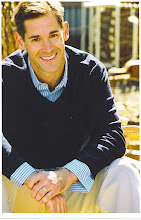
No one is surprised when Republican Presidential candidates invoke Ronald Reagan like they're counting prayer beads, but perhaps a better measure of the Gipper's political legacy is the fracas it has kicked up among the Democrats. This week, Barack Obama had the blaspheming temerity to acknowledge that Reagan was a transformational President.
"I think Ronald Reagan changed the trajectory of America, in a way that Richard Nixon did not, and in a way that Bill Clinton did not," the Senator told the Reno Gazette-Journal. "He put us on a fundamentally different path because the country was ready for it. I think they felt like with all the excesses of the 1960s and 1970s and government had grown and grown but there wasn't much sense of accountability in terms of how it was operating. . . . He just tapped into what people were already feeling, which was, 'We want clarity, we want optimism.'"
The obvious context of Mr. Obama's remarks was his case for "change" versus Hillary Clinton's "experience." But the Internet left went bananas, and John Edwards and Mrs. Clinton ripped into Mr. Obama as well. Mr. Edwards cited the "extraordinary damage" Reagan supposedly visited on the country, while in a conference call with reporters yesterday, Clinton surrogate and Baby Boom liberal Barney Frank said he was "stupefied" by Mr. Obama's "explicit endorsement" of the notion that the GOP is "the party of ideas."
According to this paranoid style, the "excesses" Mr. Obama referenced were liberal emblems like the civil rights, antiwar and women's movements, the Great Society's social welfare programs and the like. Please. More likely, the Illinois Senator was thinking of the actual reasons for Reagan's 1980 success: double-digit inflation, marginal tax rates as high as 70%, high unemployment, Soviet Communism on the march in Afghanistan, hostages in Tehran . . .
Mr. Obama is trying to associate the present with these crises -- and thus frame his candidacy as the advent of a liberal Reagan -- though whatever problems we now face are several orders of magnitude removed from those that gave rise to Reagan. And unlike Mr. Obama, Reagan campaigned on forthright policy reforms -- substance -- and not merely a change in style.
It was less his "optimism" or what the country "felt," as Mr. Obama had it, than it was Reagan's ideas that account for his success. He shifted electoral coalitions and realigned the U.S. political center to the right because he governed with a genuinely new domestic agenda and approach to foreign policy -- and it worked. Still, we suspect Mr. Obama is smarter than his Democratic critics in evoking Reagan as the example he wants to emulate, and it says something about the breadth of his political ambitions that he would do so.
The episode is most telling, though, for what it says about the ancient mariners of the Democratic Party and how little they've changed. Supposedly Mr. Obama committed a grievous blunder by nodding at the achievement of one of the most consequential Presidencies of the 20th century. If the rest of the Democrats can't even recognize the same, it suggests that the change they have in mind is back to the 1960s and '70s. Courstesy Wall Street Journal


